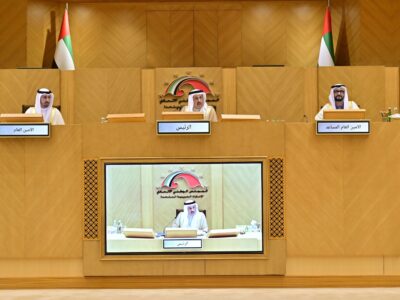The administration of Joe Biden can play a key role in easing tensions between Saudi Arabia and regional rival Iran, according to Abdulaziz Al Sager, the chairman and founder of the Gulf Research Center.
In January, Al Sager – who is also the president of Sagar Group Holding in Saudi Arabia – penned an op-ed in the Guardian alongside former Iranian diplomat Seyed Hossain Mousavian, a former ambassador to Germany and currently a nuclear policy specialist at Princeton University, in which the two men called for dialogue between Iran and Saudi Arabia.
In the piece, Al Sager and Mousavian said that the Biden administration offers an “opportunity for a new beginning.”
Speaking at an event organized by the Washington DC-based Arab Gulf States Institute of Washington (AGSIW) on Friday, Al Sager said that Biden can play a “big role” by sponsoring talks between the two countries.
“Any agreement between Iran and Saudi Arabia, under the auspices of the US and their understanding and encouragement, will help de-escalate tensions,” he said. “If the US plays a role of encouragement, putting two parties together and building an agenda, it will help a lot.”
Additionally, Al Sager – who is a member of the Makkah Province Council – said that it would also be important for the Iranian government to stop placing “blame” for US military presence on the region on the shoulders of the Saudi government.
“The Americans will be there, with or without us,” he said, noting long-standing US policies to protect energy supplies. “The US are not only protecting their interest, but that of their allies.”
In the long-term, Al Sager said that in “no way would we in Saudi Arabia like to see another war, whether it’s small or big, by proxy or directly.”
 Abdulaziz Al Sager, the chairman and founder of the Gulf Research Center.
Abdulaziz Al Sager, the chairman and founder of the Gulf Research Center.
“We welcome having a negotiation with Iran. It’s important, necessary and mandatory,” he added. “But we don’t want to have a negotiation for the sake of negotiation, but based on principles.”
Among the principles that both men believe would be a starting point for negotiations are the preservation of territorial integrity, non-interference in internal affairs, rejecting the use of force and ending support for sectarian divisions.
“If those principles are met, we’ll find new ideas,” Al Sager said. “We believe negotiations, meetings and discussion are a must, and can [address] a lot of the misunderstandings and misconceptions.”
Mousavian, for his part, said that he believes that countries around the Gulf – including Iran – need to increase cooperation with the US in a bid to address potential sources of conflict.
“I believe powers need to sit, at least at a military level, to contain such tensions,” he said.
More importantly, however, Mousavian said that the Biden administration must reflect on whether it wishes to continue with decades of established US policy in the Middle East.
 Seyed Hossain Mousavian a former ambassador to Germany and currently a nuclear policy specialist at Princeton University.
Seyed Hossain Mousavian a former ambassador to Germany and currently a nuclear policy specialist at Princeton University.
“That strategy has been dominating the region, and hegemony. If [they continue], Iran will resist,” he said.
Mousavian added that the US, however, can play a role in helping bring together the states that border the Gulf together, as well as working to support negotiated settlements between Israel and the Palestinians, as well as between Iran and Saudi Arabia.
“As long as the US administration doesn’t support a peaceful settlement in these crises, we aren’t going to get anywhere,” he said. “We need to stop hostile rhetoric to facilitate a dialogue. For a regional arrangement, I think this is the best way to go.”



.jpg)

